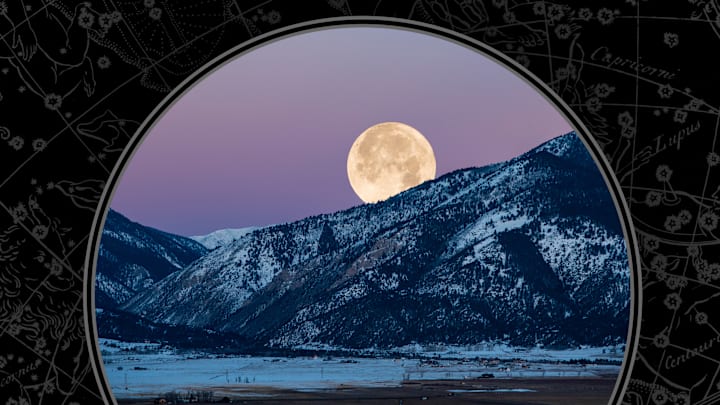If you’re looking for more ways to celebrate the new year, you’ll have an opportunity on Thursday, January 25, 2024—when the first full moon of the year will illuminate the night skies. Before looking up to see the wolf moon over your backyard, familiarize yourself with the annual celestial event and get ready for a calendar chock-full of astral activity.
What Is the Full Wolf Moon?
A wolf moon is the first (and in most years, the only) full moon to occur in January. The nickname comes from a North American folk belief that wolves howled more frequently during the first month of the year. The Assiniboine people called January’s full moon the “center moon” because the event was recognized as the midpoint of winter, according to the Old Farmer’s Almanac. Other nicknames among Indigenous groups include the “frost exploding moon” of the Cree; the “hard moon” of the Dakota, referring to the hard crust of ice that forms over snow at this time of year; and the “Canada goose moon” of the Tlingit.
When to See the Full Wolf Moon
The full wolf moon falls on Thursday, January 25, 2024. The moon will reach peak fullness at 12:54 p.m. EST. If the moon isn’t visible in your part of the world at that time, wait until sunset. The celestial body will still look especially bright throughout the night.
The full wolf moon is one of many exciting astronomical events to look forward to in 2024. After catching this one, mark your calendar for February 24—that’s when February’s full moon, the snow moon, is set to appear. And in April, a total solar eclipse, dubbed the “Great North American Eclipse,” will dazzle skygazers across a path of totality stretching from Mexico to eastern Canada. It isn’t too early to start buying your eclipse glasses.
A version of this story ran in 2021; it has been updated for 2024.
